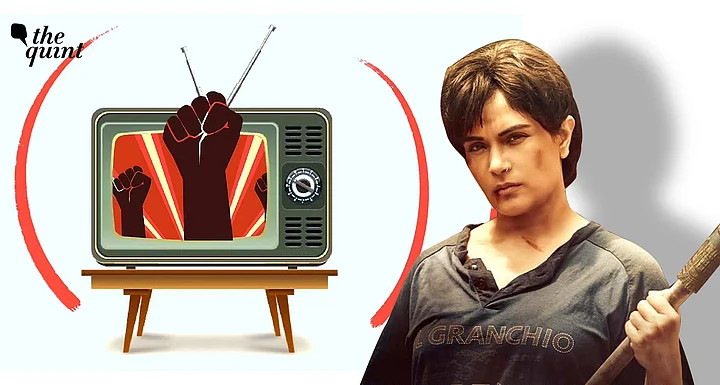Even as Richa Chadha-starrer ‘Madam Chief Minister’s’ first look — the release of its poster — on 4 January caused controversy due to its tagline being ‘poorly-worded’ and a ‘Savarna’, ‘upper-class’ woman playing the role of a Dalit (the film is loosely based on Mayawati’s life), a fresh debate began over the use of the word ‘untouchable’.
What needs to be understood is that ‘untouchability’, although banned, continues to prevail, interestingly also among the marginalised Dalit community itself.
Also, the group of people who have suffered even more among the Dalit community are the Dalit women — being doubly ‘oppressed’ among the oppressed.
It is worth noting that various legislations, programmes and policies do not specifically deal with the atrocities committed against Dalit women per se, and they are not given prominence in news media. However, many incidents of atrocities faced by Dalit women have been highlighted through cinema. For example, the Tamil movie Pariyerum Perumal (2018) highlights the impact of caste hierarchy on Dalits.
The Dominant Caste Male ‘Saviour’
Historically, it is the dominant caste protagonist in movies who protects the marginalised communities and fights for their rights. This is how our visual imagination has been shaped — seeing a dominant caste ‘saviour’. However, when cinema is seen through the lens of a member of the Dalit community, the same imagination is reversed because the difference between the story and storyteller is blurred. For example, in 1928, a Dalit Christian woman named PK Rosy became the first actress from the community in a Malayalam movie called Vigathakumaran. In this case, the storyteller JC Daniel was a (disadvantaged) Nadar caste Christian filmmaker, and was shunned — and had to leave the film which threw him into poverty.
Coming to the depiction of Dalit women, pain and anger suffered by them is somewhat muted on screen.
For example, in the movie Sujata (1959), the protagonist is from a Dalit family but is adopted by a Brahmin family . On realising this fact, she begins to live a quiet existence and suppresses her voice.
How Films Like ‘Masaan’ & ‘Article 15’ Are Changing The Game By Showing Empowered Dalit Characters
Further, movies like Achhut Kanya and Ankur showed marginalised caste women as people without agency or autonomy, and who could be sexually exploited at will. The character of Kasturi in Achhut Kanya is — as the film’s title suggests — an ‘untouchable woman’ who falls in love with a dominant caste man but is not allowed to marry him. Similarly, the character of Laxmi in the movie Ankur is a marginalised caste woman who is unable to conceive, and her vulnerability is exploited by Surya — a dominant caste man — who gets involved in an intimate relationship with her but refuses to take responsibility for her child after impregnating her.
In recent times, Bollywood movies like Article 15; and Masaan have taken the opposite approach.
For example, the character of Gaura, who is a Dalit woman in Article 15, is seen fighting for her sister in particular, and Dalit rights in general. Similarly, the character of Devi in Masaan (2015), a Dalit, despite being blackmailed by a dominant caste police inspector continues to chase her dreams to pursue higher studies.
Maybe scenes like these from the movies Article 15 and Masaan is the way forward — depicting, for instance, marginalised caste women standing up for their rights and fearlessly encountering obstacles.
(Abhinav Mehrotra is currently working as Assistant Lecturer at Jindal Global Law School and holds an LL.M. degree in International Human Rights Law. He tweets @AbhinavMehrot13. This is an opinion piece, and the views expressed are the author’s own. The Quint neither endorses nor is responsible for them.)
